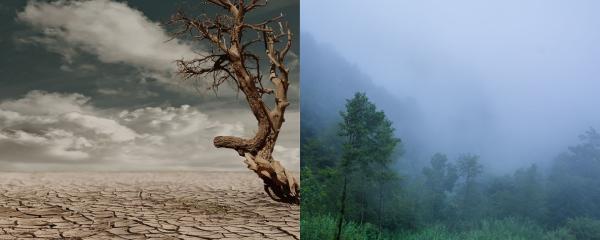
IIT Palakkad study shows how different indices used to predict drought combined with effects fof climate change can lead to different climate predictions for the future

IIT Palakkad study shows how different indices used to predict drought combined with effects fof climate change can lead to different climate predictions for the future
Electricity has become a basic necessity today - powering our homes to running our machines, all run on electricity. This growing need for electricity has seen the rise of smart grids - a network of electric supply system that detects changes in usage of electricity in real time and helps to manage the demand-supply equation. Smart grids also incorporate Dynamic pricing, where the amount per unit of electricity changes with time, with it costing higher at peak times and lower during other times.
In a pathbreaking research on anencephaly, a fatal birth defect where a baby is born without a major part of the brain and the skull, researchers from IISc and BMCRI have identified a genetic mutation that is responsible behind this condition. Technically called Tripartite Motif Containing 36 (TRIM36), this gene is responsible for the development of the nerve cells in a foetus. A modification to this, the scientists say, is to be blamed for anencephaly.
Electronic waste or e-waste pose a serious challenge in their disposal. The printed circuit boards (PCBs) present in discarded electronic devices like smartphones and computers contain toxic chemicals and metals that can get into the soil or water if thrown in landfills or burnt. Now, scientists have designed a novel technique to dispose them by simply powdering them using a cryomill. This, they claim, can completely recover the polymers and metals for recycling in an eco-friendly way, ensuring zero waste.
A new study by scientists at Translational Health Science and Technology Institute (THSTI) and Indian Institute of Chemical Technology (CSIR-IICT), has found a link between lower vitamin D levels and prevalence of hypertension in pregnant women. The research, building upon previous studies that showed a correlation between low levels of vitamin D and hypertension, has focused to see if this relationship holds true in pregnant women who are at a high risk of developing hypertension.
Tuberculosis or TB is a disease known to mankind since our existence on Earth. In spite of that, our fight against this deadly disease still continues. A major breakthrough in this fight is the identification of Mycobacterium tuberculosis, the bacteria that causes TB, in the 19th century. World Tuberculosis Day is celebrated commemorating that significant day, when Robert Koch discovered this deadly bacteria that has now become stronger than ever, and standing tall against all odds in this fight. Will we ever succeed? Only time can tell.
This 22nd of March, on the occasion of World Water Day, Research Matters caught up with Prof MS Mohan Kumar, a Professor at the Department of Civil Engineering, Indian Institute of Science (IISc), Bengaluru. He is also the Chairman of the Indo-French Cell for Water Resources and an Associate Faculty at the Interdisciplinary Centre for Water Research (ICWaR) at IISc and an ex-Secretary of the Karnataka State Council for Science & Technology. Apart from his role at the institute, Prof. Kumar has also extensively worked with government bodies such as the Bangalore Water Supply and Sewerage Board (BWSSB), Karnataka Urban Water Supply and Drainage Board (KUWSDB) and Bangalore Development Authority (BDA).
Did you know Down;s syndrome is the most common genetic disorder in humans? Characterized by physical and mental disorders of varying degree, this disorder is seen in 1 per 800 births in India and these numbers are set to increase. But what causes Down’s syndrome in the first place and how is it treated? On this World Down Syndrome Day, here is a all you need to know about this disorder and how you can help those affected by the same.
Forests play a critical role in sustaining biodiversity on the planet, including humans. They once provided food and shelter when we were hunter-gatherers. Today, our relationship with forests is at a new level. We derive most of our energy resources from forests in the form of wood and coal. What are some of the implications of this relationship and how fragile is it getting in the future? On this International Day of Forests, here is an introspection of the same.
Did you know that the mouth, which is the gateway to our digestive health, is one of the most neglected parts of the body? With a zillion bacteria that call it home, our moth, teeth and tongue have a lot to endure. On the event of World Oral Health Day, lets understand the oral health situation in the country and resolve to keep our mouth clean and healthy.
Scientists at the Indian Institute of Science (IISc), Bengaluru, have conducted a study analyzing the influence of socio-demographic factors on the commuting habits of people in Bengaluru. The findings of the team, led by Prof. Ashish Verma from the Centre for Infrastructure, Sustainable Transportation and Urban Planning (CiSTUP), can be implemented in metropolitan cities to ease traffic congestion and pollution by opting for alternative and eco-friendly modes of transport.